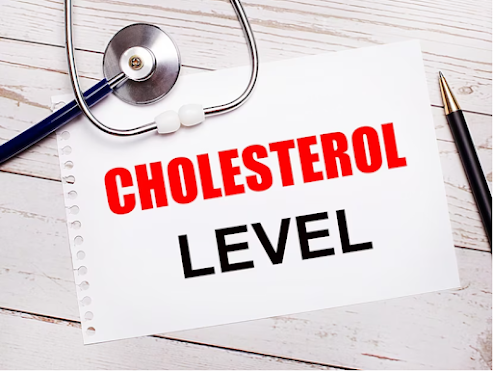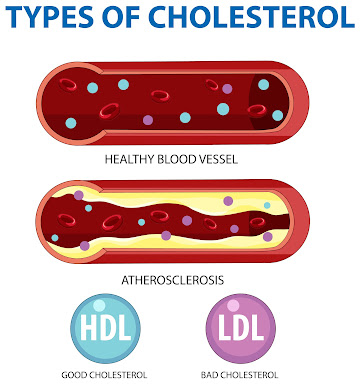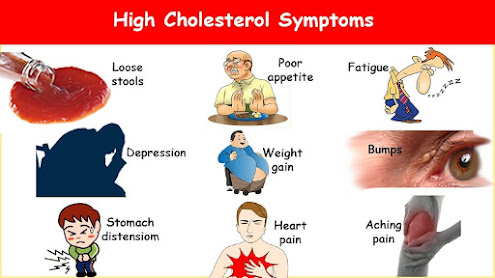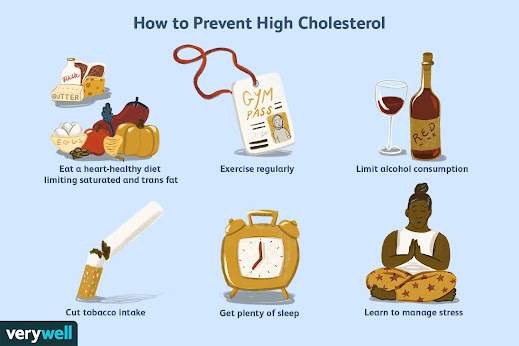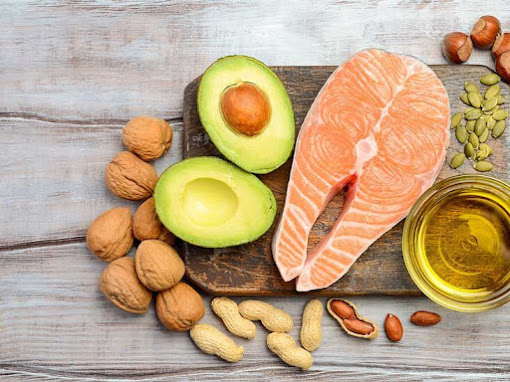What Does It Matter If You Have High Cholesterol?
Cholesterol: Friend or Foe?
Cholesterol is often vilified as a dietary demon responsible for various health issues. However, understanding the intricate role of cholesterol in the body unveils a more nuanced perspective. Contrary to popular belief, cholesterol is not all bad. In fact, it plays a vital role in numerous physiological processes that are essential for overall well-being.
Understanding Cholesterol
What is Cholesterol?
Cholesterol is a waxy, fat-like substance that is naturally
produced by the liver and also obtained through certain foods. It is necessary
for the production of hormones, vitamin D, and bile acids that aid in
digestion. Cholesterol is transported in the bloodstream by lipoproteins,
namely low-density lipoprotein (LDL) and high-density lipoprotein (HDL).
LDL and HDL: The Yin and Yang of Cholesterol
LDL cholesterol, often referred to as "bad" cholesterol,
carries cholesterol from the liver to the cells. High levels of LDL cholesterol
can lead to the buildup of plaque in the arteries, increasing the risk of heart
disease. On the other hand, HDL cholesterol, known as "good"
cholesterol, transports cholesterol back to the liver, where it is eliminated
from the body.
The Link Between Genetics and Cholesterol Levels
Genetics play a significant role in determining an individual's
cholesterol levels. Some people are genetically predisposed to have higher
cholesterol levels, even without a poor diet or sedentary lifestyle.
Understanding genetic factors can provide insight into personalized management
strategies for cholesterol.
Normal vs. High Cholesterol: Defining the Threshold
High cholesterol is typically diagnosed when one's total
cholesterol, LDL cholesterol, or triglyceride levels exceed the recommended
thresholds. It is essential to understand these values to determine if
intervention is necessary for maintaining optimal health.
Debunking the Cholesterol Myth
The Misinterpretation of Cholesterol as the Villain
Cholesterol has undeservedly gained a notorious reputation. The
belief that dietary cholesterol is the primary driver of high cholesterol
levels has been debunked by scientific research. While it is true that
cholesterol-rich foods can impact cholesterol levels to some extent, individual
genetics and lifestyle factors play a more significant role.
Unraveling the Flawed Cholesterol-Heart Disease Connection
For decades, the cholesterol-heart disease connection has been
oversimplified. It was once believed that high cholesterol directly caused
heart disease. However, recent research has highlighted the crucial role of
inflammation in atherosclerosis, the process underlying heart disease,
challenging the traditional cholesterol-centric view.
The Role of Inflammation in Atherosclerosis
Atherosclerosis is a complex inflammatory condition characterized
by the buildup of plaque in the arteries. Inflammation plays a significant role
in the initiation and progression of this disease. High cholesterol can
contribute to atherosclerosis, but it is not the sole culprit. Addressing
inflammation is crucial for a comprehensive understanding of heart health.
High Cholesterol: Health Implications
Identifying the Risks: High Cholesterol as a Silent Menace
High cholesterol often goes unnoticed as it does not display any
overt symptoms. However, untreated high cholesterol can significantly increase
the risk of developing heart disease, stroke, and other cardiovascular
conditions. Regular monitoring and early intervention are essential for
mitigating these risks.
A Closer Look at Atherosclerosis and Plaque Formation
Atherosclerosis begins with the accumulation of cholesterol-rich
plaque in the arteries, narrowing the blood vessels and impeding blood flow.
This buildup can lead to various health complications, such as chest pain
(angina), heart attack, and stroke.
Cholesterol's Role in Cardiovascular Disease Development
While cholesterol is involved in the formation of plaque, it is
only one piece of the puzzle. Addressing other risk factors, such as
hypertension, diabetes, obesity, and lifestyle habits, is crucial for managing
and reducing the overall risk of developing cardiovascular disease.
Cholesterol’s Impact on Overall Health
Cholesterol as a Vital Component for Hormone Production
Cholesterol serves as a fundamental building block for the
production of essential hormones, such as estrogen, progesterone, testosterone,
and cortisol. Maintaining optimal cholesterol levels is crucial for hormonal
balance and overall health.
The Connection Between Cholesterol and Brain Health
Contrary to common misconceptions, cholesterol is vital for brain
health. It is essential for the formation and maintenance of brain cell
membranes, as well as the production of neurotransmitters necessary for proper
cognitive function. Low levels of cholesterol have even been associated with an
increased risk of developmental and neurological disorders.
Cholesterol and Vitamin D Synthesis
Cholesterol plays a vital role in the synthesis of vitamin D, a
crucial nutrient that supports healthy bones, immune function, and overall
well-being. A deficiency in cholesterol can have adverse effects on vitamin D
production and absorption.
Lifestyle Factors and Cholesterol
Diet and Cholesterol: Debunking the Dietary
Cholesterol Myth
Contrary to popular belief, dietary cholesterol has minimal impact
on blood cholesterol levels for most individuals. Saturated and trans fats,
along with excess calorie consumption, have a more substantial influence on cholesterol
levels. Adopting a well-balanced diet that includes healthy fats, whole grains,
fruits, and vegetables is key to maintaining optimal cholesterol levels.
The Influence of Saturated and Trans Fats on
Cholesterol Levels
Saturated and trans fats, commonly found in processed foods, can
raise LDL cholesterol levels and increase the risk of heart disease. Limiting
the intake of these fats and opting for healthier alternatives, such as
unsaturated fats, can help manage cholesterol levels effectively.
The Power of Fiber: Reducing LDL Cholesterol
Naturally
Dietary fiber, particularly soluble fiber, has been shown to
effectively lower LDL cholesterol levels. Consuming foods rich in fiber, such
as whole grains, legumes, fruits, and vegetables, can be a valuable addition to
a cholesterol-lowering diet.
The Role of Physical Activity in Cholesterol
Management
Regular physical activity has numerous benefits for cholesterol
management. Exercise can increase HDL cholesterol levels, improve overall
cardiovascular health, and aid in weight management. Engaging in aerobic
activities, strength training, and maintaining an active lifestyle are
essential for optimal cholesterol levels.
Medications and Cholesterol Control
Statins: Unveiling the Benefits and Risks
Statins are commonly prescribed medications for lowering LDL
cholesterol levels. They are known to be effective in reducing the risk of
cardiovascular events. However, like any medication, statins carry potential
risks and side effects. It is important to weigh the benefits and risks and
consult with a healthcare professional before starting statin therapy.
Alternative Medications for Cholesterol
Management
For individuals who cannot tolerate statins or prefer alternative
treatments, there are other medications available for cholesterol management.
These medications work through different mechanisms and can be considered based
on individual needs and preferences.
The Importance of Regular Check-Ups
Blood Tests: Understanding Lipid Profiles
Regular lipid profile tests are essential for assessing
cholesterol levels and monitoring overall cardiovascular health. Lipid profiles
measure total cholesterol, LDL cholesterol, HDL cholesterol, and triglyceride
levels, providing valuable information for personalized management strategies.
Factors Affecting Cholesterol Levels: What Can
You Control?
While genetics play a significant role in cholesterol levels,
lifestyle choices also have a substantial impact. Factors such as diet,
physical activity, smoking, and alcohol consumption can be modified to maintain
optimal cholesterol levels and reduce cardiovascular risks.
Strategies to Lower Cholesterol Naturally
Optimal Diet and Nutrition for Cholesterol
Management
Adopting a heart-healthy diet is vital for managing cholesterol
levels naturally. This includes consuming foods rich in healthy fats,
high-quality proteins, whole grains, fruits, and vegetables while limiting
saturated and trans fats, processed foods, and excessive sugar and salt intake.
The Role of Supplements in Balancing Cholesterol
Some supplements, such as plant sterols, omega-3 fatty acids, and
red yeast rice, have shown potential in managing cholesterol levels. However,
it is important to consult with a healthcare professional before starting any
supplementation to ensure safety and effectiveness.
Lifestyle Modifications: Building Healthy Habits
Making sustainable lifestyle changes is key to long-term
cholesterol management. Adopting regular exercise routines, managing stress
levels, getting quality sleep, and quitting smoking are all important aspects
of a comprehensive approach to maintaining optimal cholesterol levels.
In Perspective: Individual Risk and Cholesterol
Customizing Treatment Plans Based on Risk
Factors
Cholesterol management should be approached on an individual
basis, taking into account personal risk factors, such as family history, age,
existing health conditions, and lifestyle choices. Customizing treatment plans
can help address specific needs and optimize outcomes.
Cholesterol Guidelines: How Reliable Are They?
While cholesterol guidelines provide a framework for clinical
decision-making, they should not be considered a one-size-fits-all approach.
Individualized care, based on a comprehensive understanding of the patient's
unique risk factors, is crucial for effective cholesterol management.
Summary: The Bigger Picture
Cholesterol: A Nuanced Perspective
Taking a more nuanced perspective on cholesterol helps dispel
myths and misconceptions surrounding its role in health. Recognizing that
cholesterol is not solely a villain but a crucial component of various
physiological processes is essential for understanding its impact on overall
well-being.
Balancing the Need for Cholesterol with Heart
Health
Maintaining optimal cholesterol levels is important for heart
health, but it should be viewed as part of a broader approach that encompasses
other risk factors and lifestyle choices. Achieving a balance between the need
for cholesterol and heart health is key to long-term well-being.
Embracing a Holistic Approach to Cholesterol
Management
A holistic approach to cholesterol management considers the
interplay of genetics, lifestyle choices, inflammation, and other
cardiovascular risk factors. By addressing these factors comprehensively,
individuals can optimize their cholesterol levels and reduce the risk of
developing heart disease and related conditions.
FAQs on Cholesterol
1. Can
I eat eggs if I have high cholesterol?
- Yes, eggs can be part of a
healthy diet for individuals with high cholesterol. However, it is
important to consume them in moderation and in the context of an overall
balanced and heart-healthy diet.
1. What
is the optimal LDL cholesterol level?
- The optimal LDL cholesterol
level may vary depending on an individual's overall cardiovascular risk
factors. Generally, a level below 100 mg/dL is considered optimal, but
this can be further personalized based on the individual's health profile.
1. Is
it necessary to take medication for high cholesterol?
- Medication for high cholesterol
may be necessary for individuals with significantly elevated cholesterol
levels or those at high cardiovascular risk. However, lifestyle
modifications should always be the first-line approach, and the decision
to start medication should be made in consultation with a healthcare
professional.
1. Does
stress affect cholesterol levels?
- Chronic stress can potentially
impact cholesterol levels. It can lead to unhealthy lifestyle behaviors, such
as overeating or increased alcohol consumption, which can adversely affect
cholesterol levels. Additionally, stress hormones may also play a role in
cholesterol metabolism. Adopting stress management techniques is important
for overall well-being, including cholesterol management.
1. Can
I prevent high cholesterol through a healthy lifestyle alone?
- For many individuals, adopting
a healthy lifestyle, including a nutritious diet, regular exercise, and stress
management, can effectively maintain optimal cholesterol levels. However,
some individuals may have genetic factors that predispose them to high
cholesterol, making it necessary to combine lifestyle changes with
medication for effective management.

